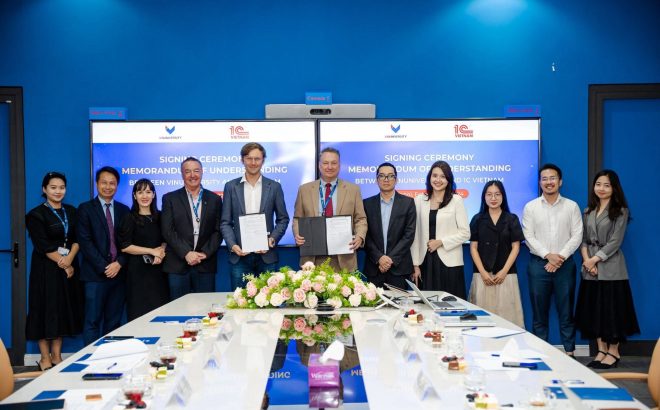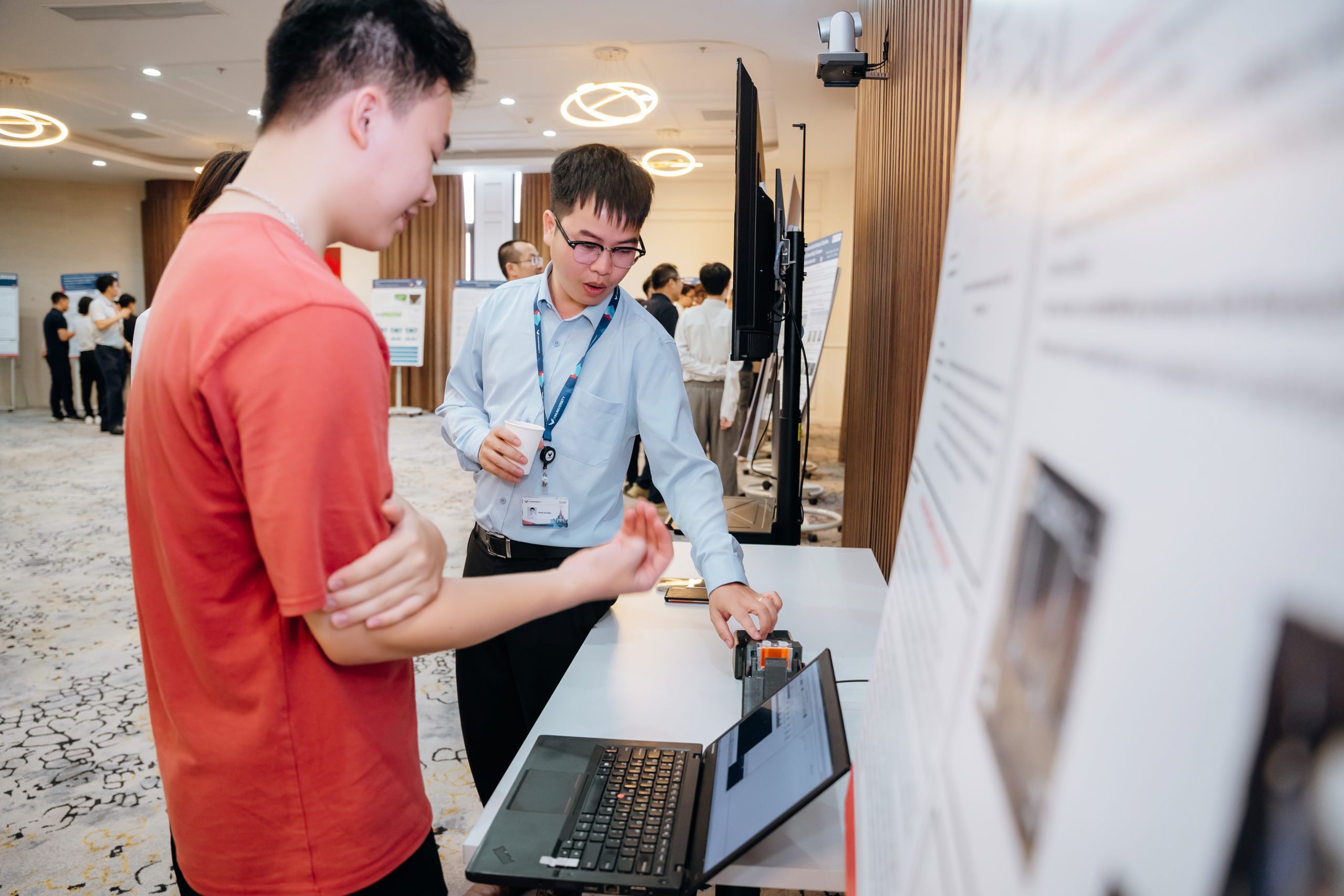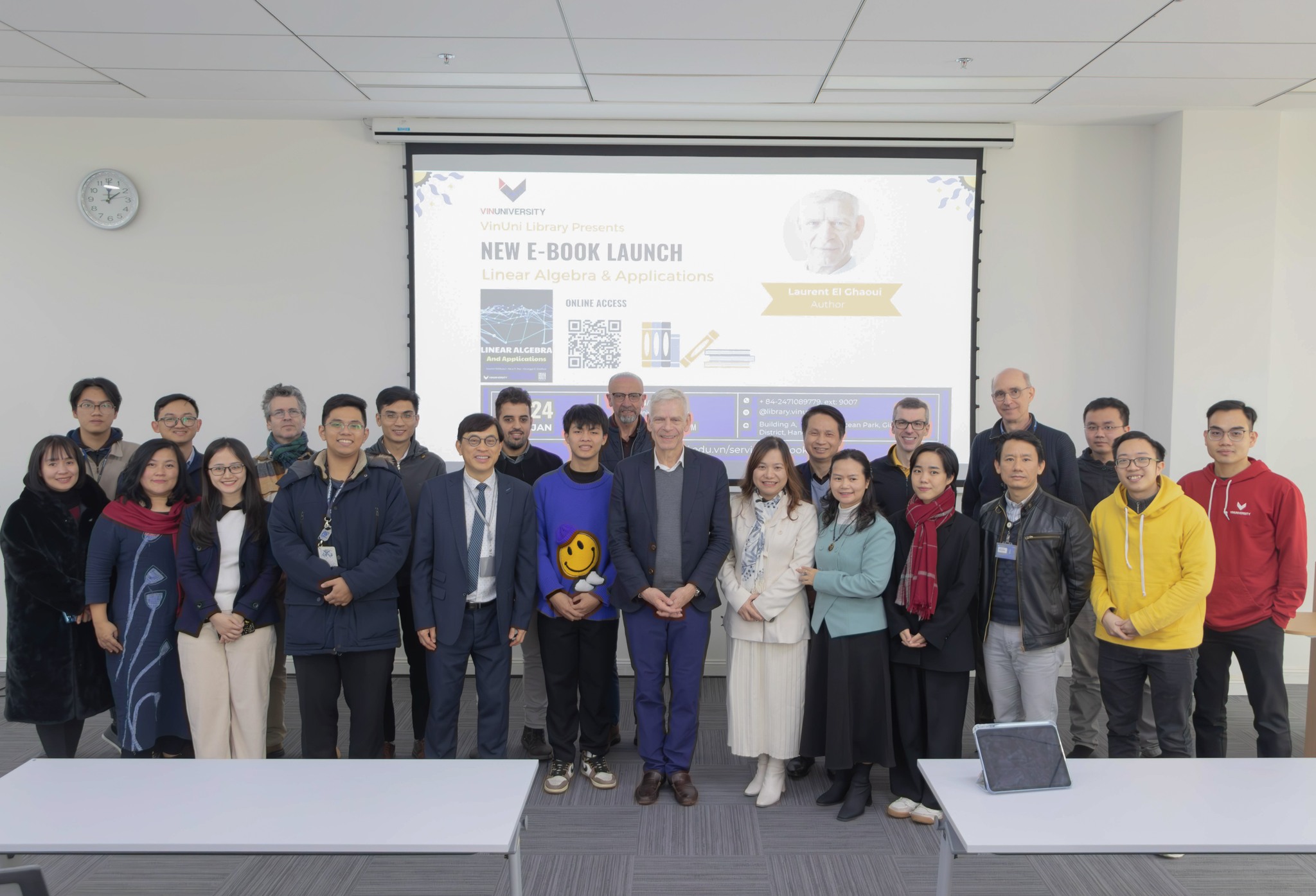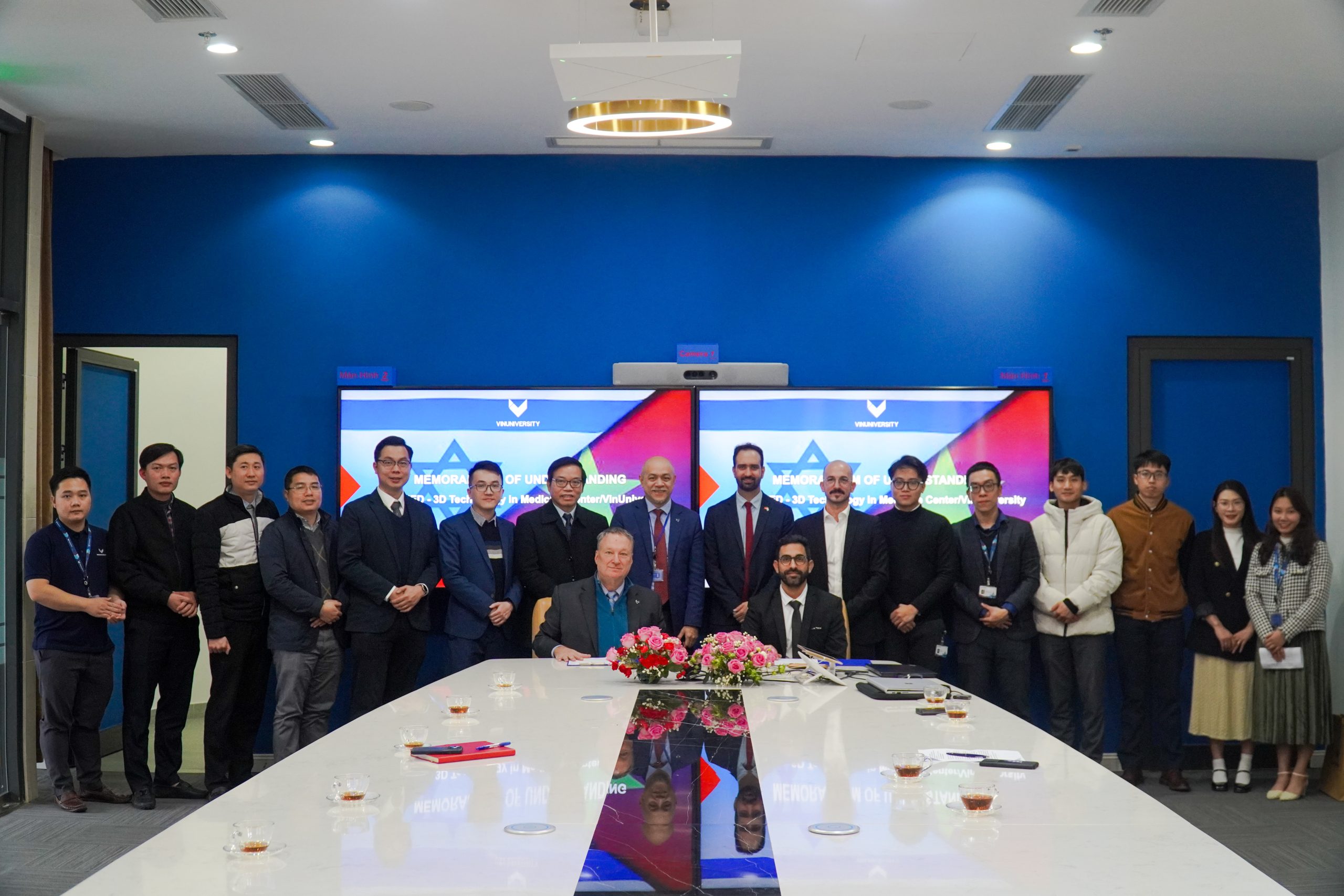The Industry Innovation Research Project (VIIR): VinUni’s pioneering step in sectoral-level innovation research in Southeast Asia
The Vietnam Industry Innovation Research (VIIR) is a joint initiative between VinUniversity and the Portulans Institute (PI). PI was founded and was presided by Professor Soumitra Dutta, Dean of the Saïd Business School at Oxford University, originator of the Global Innovation Index (GII), and a member of the VinFuture Prize Council. A conference introducing the project, featuring Professor Dutta, along with a roundtable discussion, took place on June 14th at VinUniversity.
VIIR was established with the aim of providing a comprehensive perspective on industry innovation for Vietnam, revolutionizing the evaluation of innovation by considering not only the national ecosystem but also innovation at the industry and organizational levels. This is the first research project of its kind in Southeast Asia and the only one in Vietnam that comprehensively evaluates industry-level innovation. The project focuses on three selected industries: healthcare, hospitality/tourism, and retail commercial leasing.
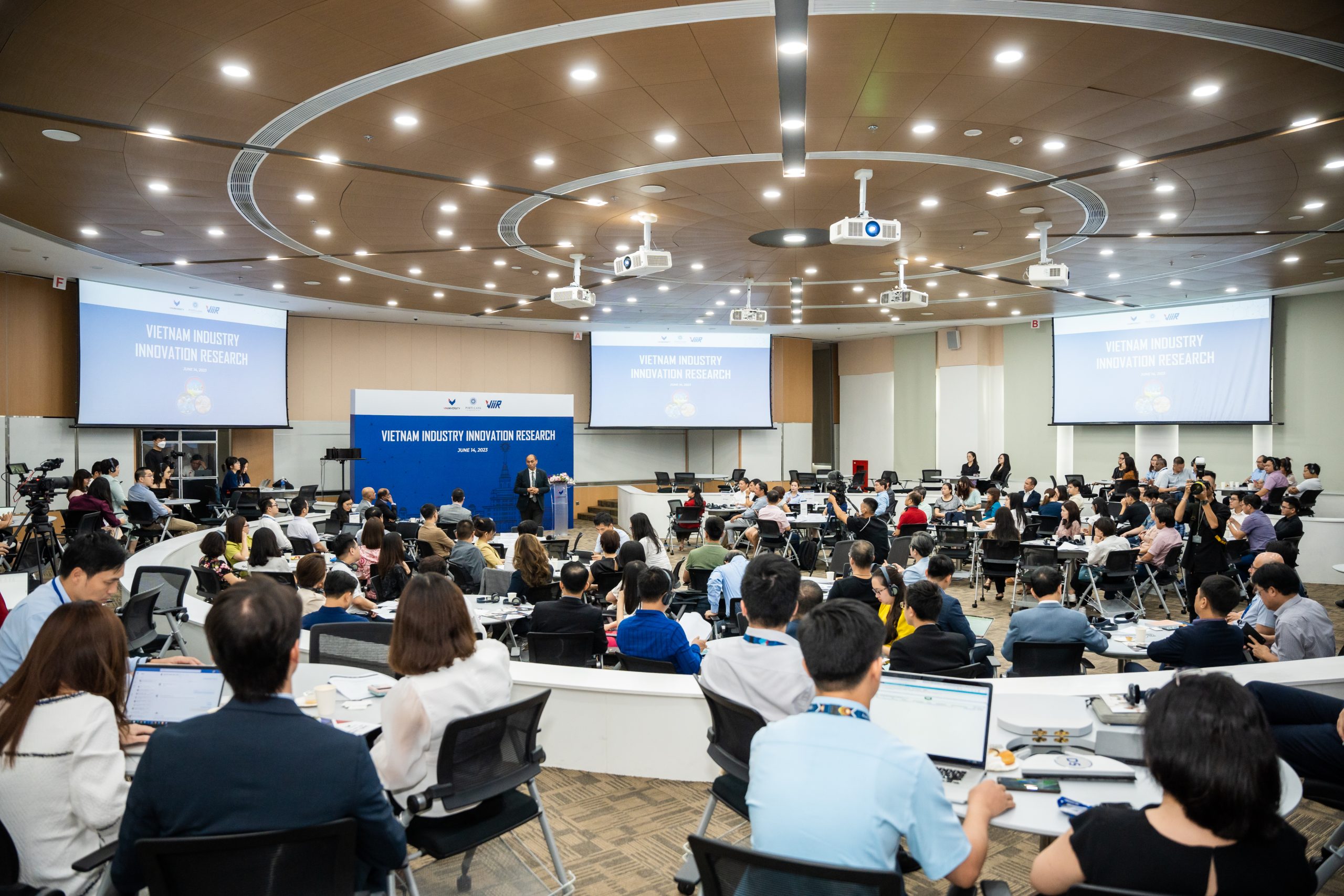
The VIIR is a joint initiative between VinUniversity and the Portulans Institute (PI), which was founded and was presided by Professor Soumitra Dutta
Participating as a guest speaker at the seminar, Associate Professor Hoang Minh, Director of the Institute of Science, Technology and Innovation and a representative of the Ministry of Science and Technology, highly valued the scale and importance of the project, especially with the participation of Professor Soumitra Dutta, often referred to as the “father” of the Global Innovation Index (GII), in a leadership role.
According to Associate Professor Hoang Minh, Vietnam is one of the countries particularly interested in the GII, with a strategic goal of being ranked among the top 40 most innovative nations in the world by 2030, as set by the Government (in 2022, Vietnam was ranked 48th out of 132 participating countries). To achieve the goal, it is necessary to innovate the development model based on science, technology, and innovation.
Although there are innovation indexes at national and provincial level, when implemented in practice, the Ministry of Science and Technology faces several limitations as there is no system and data available for disaggregating the index by industry to implement upgrading measures. “We hope that VinUniversity and Professor Dutta’s pioneering step in initiating the VIIR research project will contribute to increasing important databases for evaluating the level of innovation in various industries in Vietnam,” said Associate Professor Hoang Minh.
During the conference, Professor Soumitra Dutta emphasized that Vietnam has a good international reputation. The world highly values the hardworking culture of its people and the dynamic development of the Vietnamese economy. “Vietnam has a strong application of the GII, particularly in building the provincial-level innovation index. Building upon this foundation, greater attention should be given to industry-level innovation with a focus on the market. This is one of the prerequisites for the breakthrough development of the nation’s economy, considering innovation as the spearhead,” said Professor Dutta.
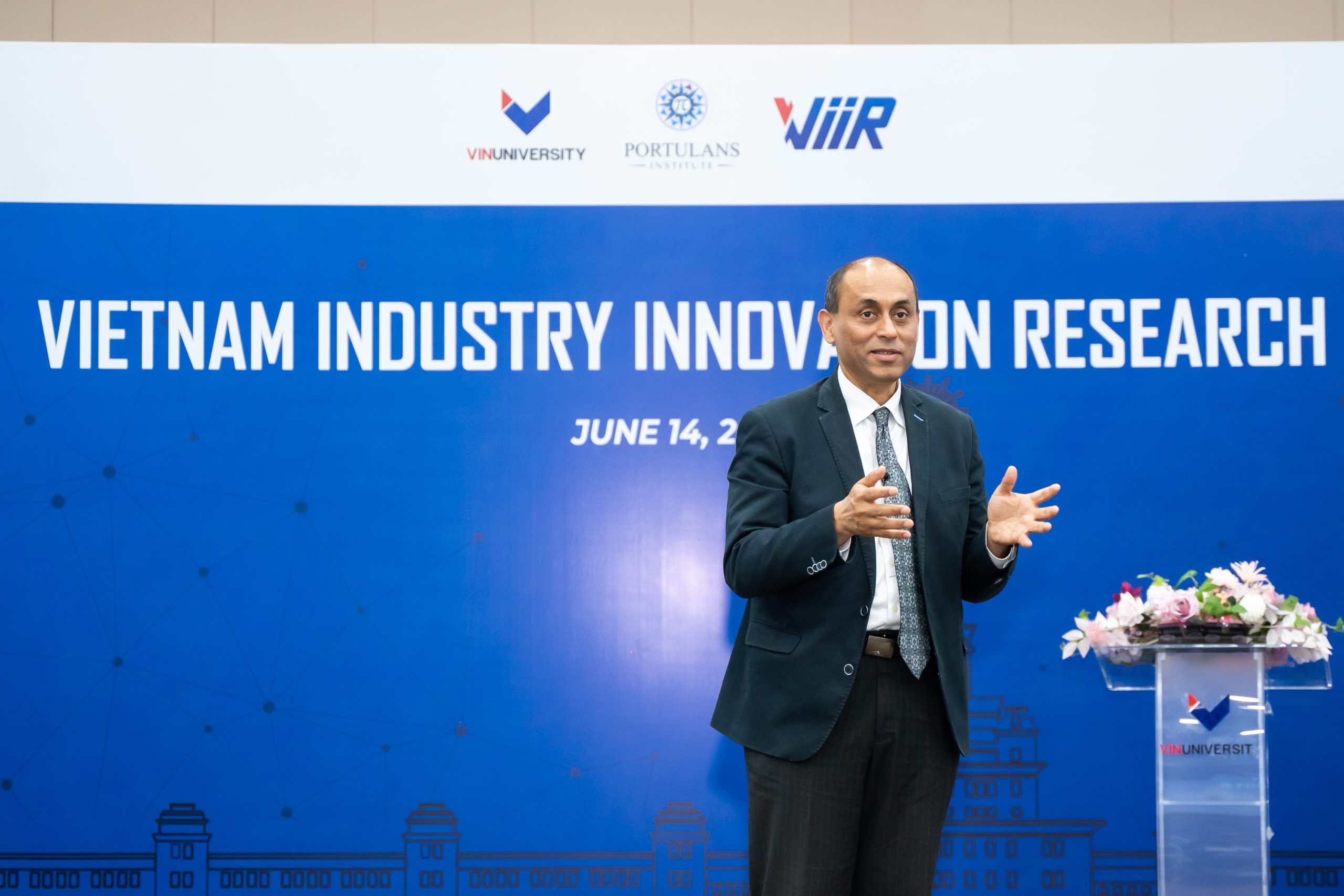
Professor Soumitra Dutta at the VIIR Conference
The VIIR research model has several differences compared to the GII and previous studies on innovation, such as:
- Deep dive into evaluating the industry-level innovation, using a comprehensive and multi-layered assessment model that compares the innovation ecosystem of the entire economy and the specific innovation ecosystem of individual businesses within the industry.
- The model includes input indicators (context, technology, human capital, leadership) and output indicators of innovation (business innovation, societal innovation, and environmental innovation).
- Vietnam is compared to 17 other countries, including 6 high-income countries, 6 upper-middle-income countries, and 5 lower-middle-income countries (mainly within the ASEAN bloc). The data used to assess the national innovation ecosystem is not only sourced from the database of the Global Innovation Index (GII) but also from other databases including the Network Readiness Index (NRI), the Global Talent Competitiveness Index (GTCI), and other international sources. The data used to evaluate the specific innovation ecosystem of businesses within the industry is derived from a survey of more than 500 managers working in three sectors: healthcare (hospitals and pharmaceuticals), hospitality, and retail commercial leasing.
Key findings:
- Compared to 17 other countries, the results show that Vietnam ranks first among the lower-middle-income countries and 13th out of the 18 ranked countries. Along with the Philippines, Vietnam surpasses the group of lower-middle-income countries in terms of innovation. Vietnam’s capacity to generate breakthrough innovation ranks 7th out of the surveyed countries, competing on a par with high-income countries such as the UK or Switzerland, indicating the country’s potential in generating many market-receptive business ideas. Vietnam’s lower-ranked aspects include Technology and Environmental Innovation.
- In terms of the innovation level in three industries in Vietnam, the report reveals that the Retail Commercial Leasing sector stands out, ranking the highest among the surveyed industries in most criteria. The Healthcare sector leads in continuous innovation but faces challenges related to resource consumption and output. Meanwhile, the Hospitality sector demonstrates lower performance across most pillars but includes some notable businesses that operate efficiently.
According to Professor Soumitra Dutta, the research findings hold value for policymakers, industry leaders, and stakeholders in developing plans and policies to promote innovation and sustainable growth at the industry, national, and enterprise levels. “We hope that the Vietnamese government will utilize this research to contribute to formulating sectoral-level innovation policies,” shared Professor Soumitra Dutta.
After Professor Dutta’s presentation, a lively roundtable discussion took place. The participants, including policymakers, researchers, and industry experts, agreed that this study was new and distinct, with no overlap with previous research. They emphasized that it could enhance the existing innovation indexes by providing a more comprehensive view of the innovation landscape in Vietnam. Additionally, valuable suggestions were made to further improve the research. Leading the roundtable session, Professor Rohit Verma, the Provost of VinUniversity, stated that the research team would incorporate all the opinions and contributions from the discussion session to enhance the research report.
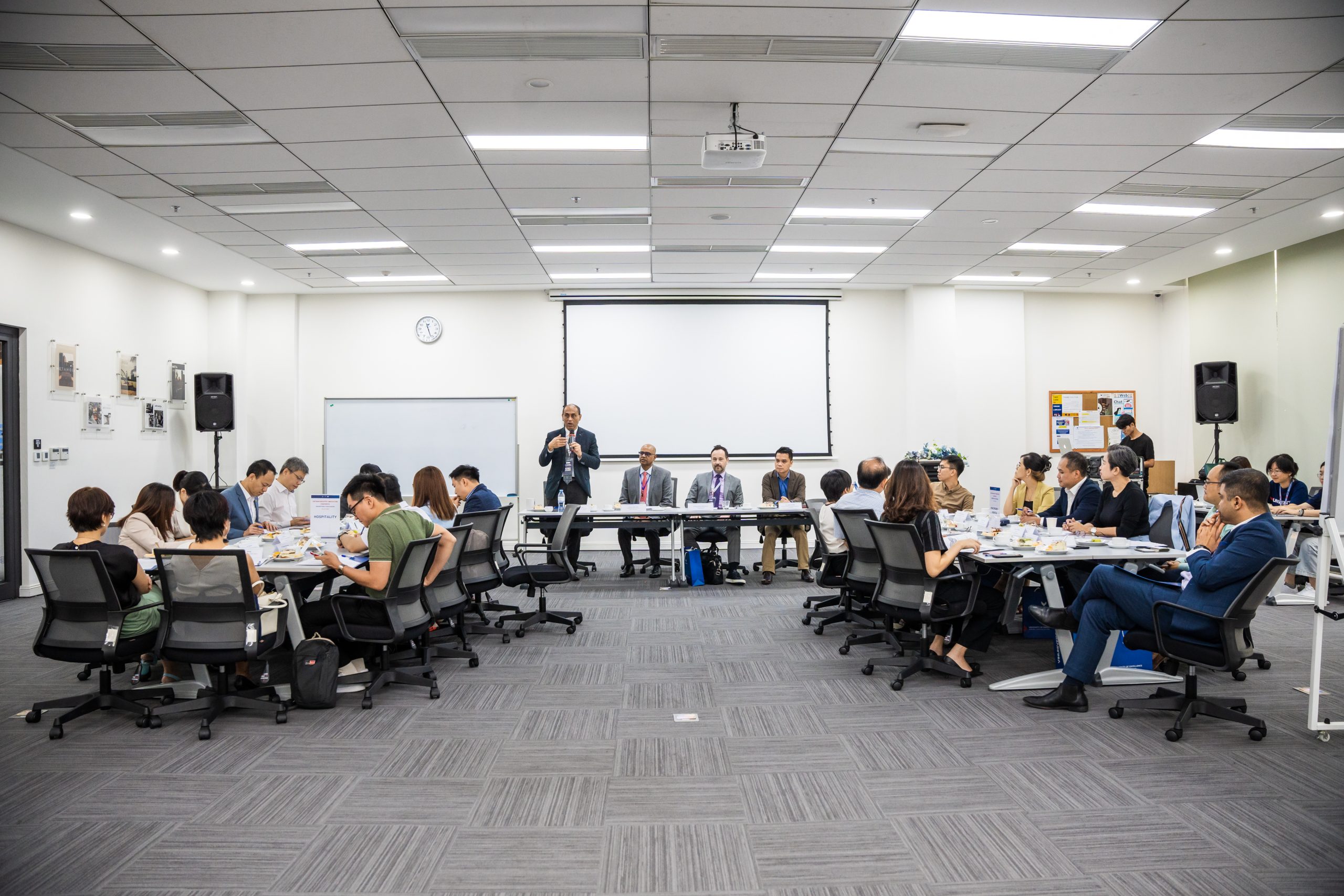

“We will strive to compile and release the initial report by the end of this month. Subsequent reports will be released periodically. We hope to have the opportunity to develop from what you have contributed today. We will start seeing a real impact in the coming years,” said Professor Rohit Verma. He also expressed the honor of working with Professor Dutta from the University of Oxford and the team of students and volunteers on behalf of VinUniversity.
It is rare to see student participation in this type of research. However, you will see that we truly consider this research as an integral part of the students’ learning process, and we will continue to employ this model in the future. Thank you to all the students and volunteers,” Professor Rohit Verma added.
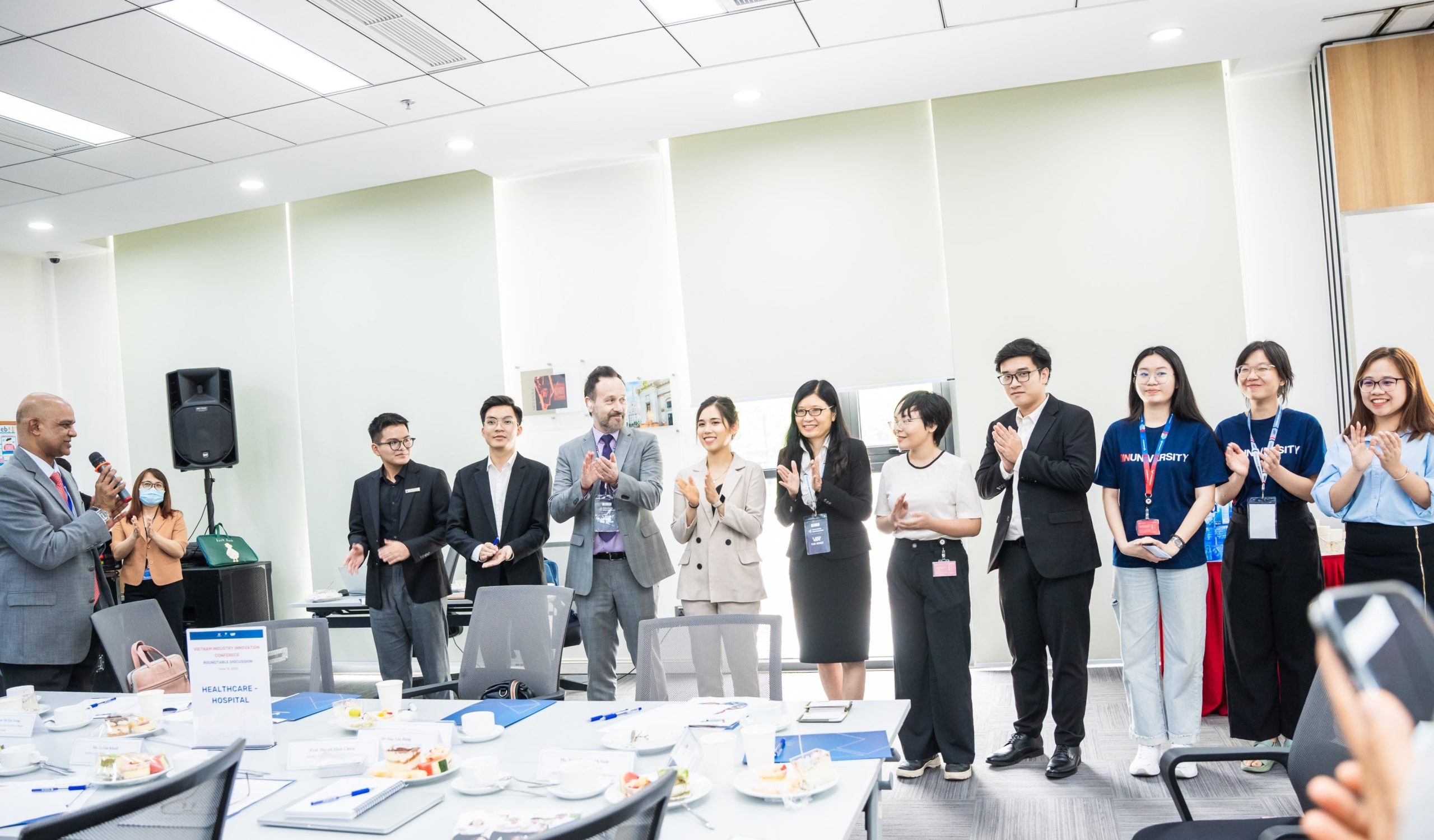
Professor Rohit Verma, Dr. Rafael Escalona Reynoso, and Assoc. Prof. Phan Thi Thuc Anh with VinUni’s students as research participants






